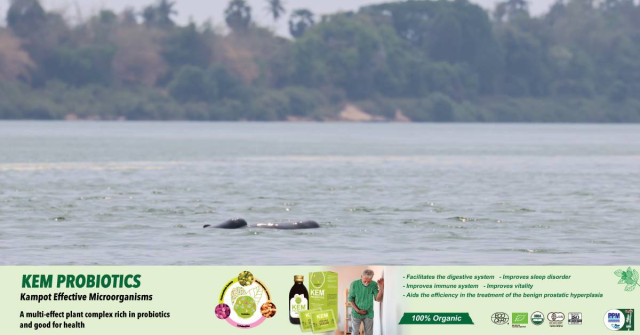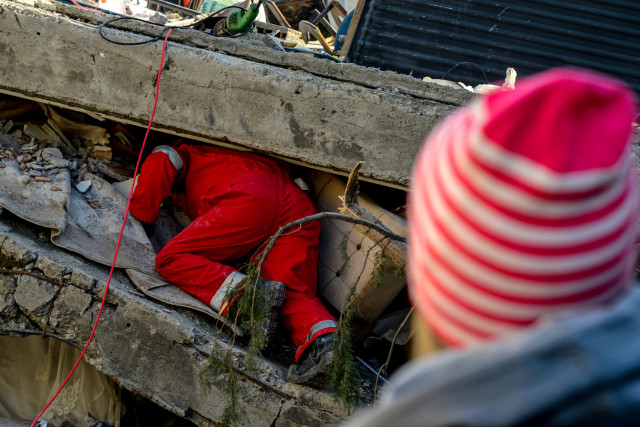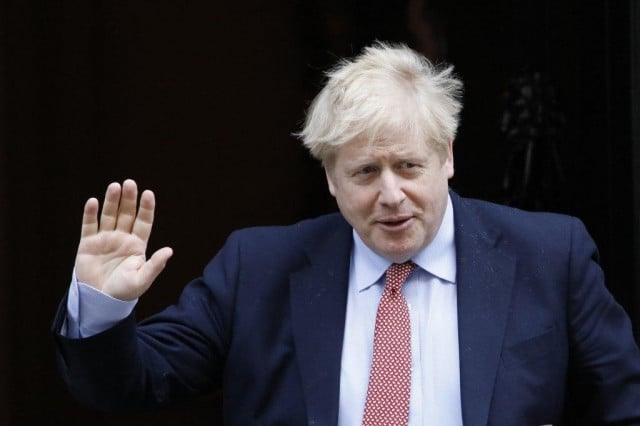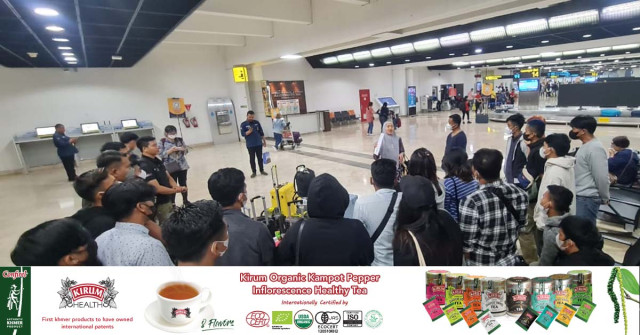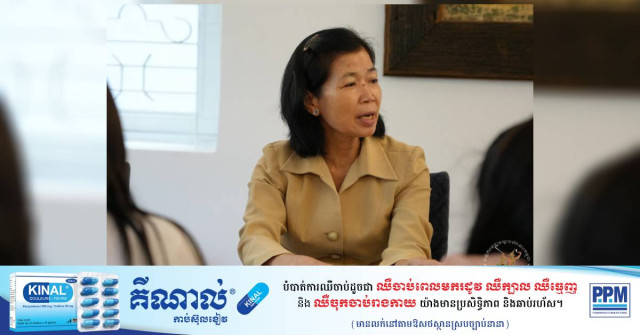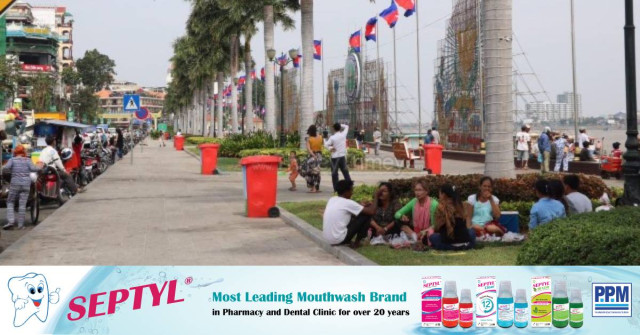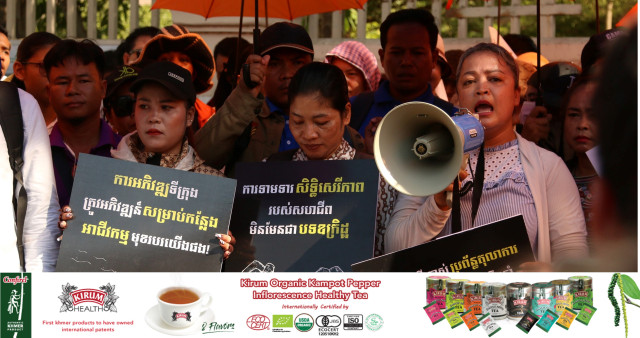In the Face of Global Disruption, is the World – and Cambodia -- Prepared for the COVID-19 Outbreak?
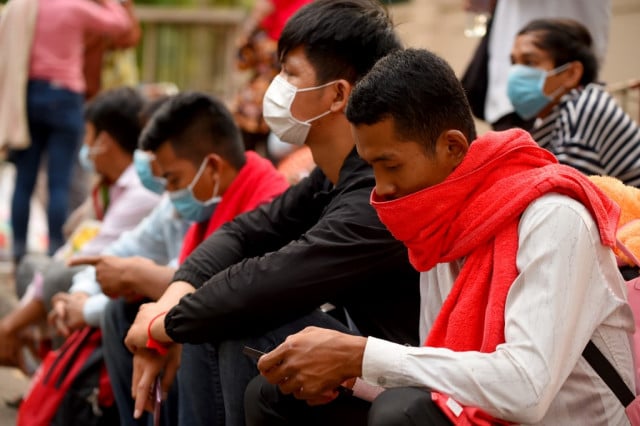
- Gerald Flynn
- March 4, 2020 3:12 AM
The Ministry of Health is adamant Cambodia can contain the outbreak. However, the country is dealing with the unknown as every other nation in the world, a local doctor, along with the WHO, point out.
PHNOM PENH--The World Bank and the International Monetary Fund (IMF) announced they stand ready to “address the human tragedy and economic challenge posed by the COVID-19 virus.”
IMF Managing Director Kristalina Georgieva and World Bank Group President David Malpass issued the statement in Washington on Monday saying they are committed to paying “special attention to poor countries where health systems are the weakest and people are most vulnerable.”
This comes after a report from Oxford Economics, a forecasting and analysis consultancy firm, claimed that if the coronavirus spreads beyond Asia, it could slow global growth by up to 1.3 percent – the equivalent of $1.1 trillion.
“International cooperation is essential to deal with the health and economic impact of the COVID-19 virus,” read the joint statement from the World Bank and the IMF, with Cambodia’s Ministry of Health claiming it has been doing just that.
“We work closely with the US CDC [Center for Disease Control], the WHO [World Health Organization] and doctors from overseas who are working in Cambodia,” said Dr Ly Sovann, spokesperson for the Cambodian Ministry of Health.
“We work with them every day, every hour to support critical systems with resources to control the COVID-19 outbreak. We follow the international health regulations from 2005. They require every country be transparent and I can share with you that the WHO Western Pacific consider Cambodia as the most transparent country in terms of this reporting, including COVID-19,” Dr Sovann said.
The fear that transparency has been lacking has grown in Cambodia of late. Following Prime Minister Hun Sen’s decision to allow the MS Westerdam cruise ship to dock in Sihanoukville last February, which nearly prompted a diplomatic incident when a passenger found free of the virus in Cambodia was declared to carry it in Malaysia, information on the situation in the country has been slow coming.
Hun Sen has maintained that “a friend in need is a friend indeed” with regards to China where the outbreak began and critics have been quick to point out he seemed more concerned about his and the country’s image, plus the effect of declaring the presence of COVID-19 cases on tourism, than the potential impact the emerging pandemic could have in Cambodia.
“The WHO declared a public health emergency earlier last month and said very clearly not to restrict trade or travel: If you do so, you’ll need to provide clear evidence to the WHO and to other countries before you implement any restrictions,” said Dr. Sovann, adding that the Cambodian students in Wuhan—believed to be the epicenter of the outbreak—are healthy and are being looked after by Cambodian consulate officials following Hun Sen’s refusal to evacuate them as 34 other countries decided to do with their stranded nationals.
For Dr. Sovann, Cambodia must rely on its experience in the face of viral outbreaks: from SARS in 2002 to Swine Flu in 2009 and the Foot and Mouth outbreak in 2012. He believes the country has enough experience to control this outbreak.
“We continue to strengthen our capacity so if there is local transmission or mass casualties, it will happen in rare conditions,” said Dr. Sovann. He added that anyone who suspects he/she may be developing symptoms of the virus to call the 115 hotline and only rely on information from the Ministry of Health or the Center for Disease Control.
However, a senior Phnom Penh-based doctor, who spoke to Thmey Thmey on the condition of anonymity for fear of repercussion, claimed that Cambodia is ill-prepared for the outbreak—as are most countries, he said.
“Since the COVID-19 infectiousness from human-to-human is so great and 80 percent of the cases have minor or no symptoms, most countries failed to screen and under-reported the true infection rate until people die, no matter which one of the country, rich or poor,” argued the doctor, adding that governments have provided limited information and are not prepared well enough to help their people.
“Tests are not publicly available and accuracy is not known. Cambodia is the same, like those other countries, generally poorly prepared for the situation,” he said. He went on to confirm that Pasteur Institut Cambodge is the best lab for processing COVID-19 testing locally but pointed out that they are chronically underfunded. A range of research assistant and nursing positions were advertised with various hospitals of epidemiology and public health across Cambodia through the Pasteur Institut’s website.
When asked why he thought the number of confirmed cases in Cambodia was still zero, he responded, “Like the rest of the world, there was a lack of good preparation, well-coordinated efforts and communication to the public. However, even with well-prepared and well-to-do countries, the number of tests and reports cases are not accurate until one or two years pass. How can you screen and test those 80 percent of people who have no symptoms?”
“Most of the abrupt, current surges in fatalities in other countries confirm that there is no effective screening process so far for this virus,” he added.
As the WHO announced on Monday, “We are in uncharted territory with COVID-19. We have never before seen a respiratory pathogen that is capable of community transmission, but which can also be contained with the right measures.”






